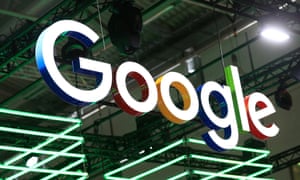|
|
Mon
|
Tue
|
Wed
|
Thu
|
Fri
|
Sat
|
Sun
|
|
P1
|
|
|
|
|
|
|
|
|
P2
|
Theory Quotes
Section A
|
|
New & Digital
Media Lessons
Section B
|
|
|
Section B Questions
|
|
|
P3
|
Section A: Q2/3
|
|
|
|
Section B Questions
|
|
|
|
P4
|
|
|
|
|
NDM Case Studies
Section B
|
New and Digital Media:
Useful Revision
Articles
Section B
|
|
|
P5
|
'Identities & The Media' Lessons
Section A
|
|
|
|
Unit 3 Key Theories
|
|
|
|
P6
|
|
|
|
|
NDM Theories
/Issues/
Debates Summaries
|
'Identities & The Media' Lessons
Section A
|
|
|
After School
5:30pm to 7:30pm
|
Revision Express Textbook
Section A
|
|
NDM Quotes + Marxism/
Pluralism
Section B
|
|
|
|
Theory Quotes
Section A
|
|
8pm to 9:30pm
|
|
|
New and Digital Media:
Useful Revision
Articles
Section B
|
|
|
|
NDM Quotes + Marxism/
Pluralism
Section B
|
Tuesday, 23 May 2017
Revision Plan
Monday, 22 May 2017
Week 37 Story 75 Google tried to block media coverage of gender discrimination case
Google tried to block media coverage of gender discrimination case
https://www.theguardian.com/technology/2017/may/22/google-gender-discrimination-case-reporting-restricted
Google has tried to restrict reporting on a high-stakes gender discrimination case brought by the US government and fought to have the case thrown out of court because of a federal attorney’s comments to a reporter.
Google also attempted to restrict press access during a hearing last month. Following a private meeting with the judge about the Guardian’s reporting, Google’s attorney requested that the proceeding be closed to the media before continuing, but a DoL attorney objected and the judge sided with the government.
Jennifer Schwartz, another attorney who has represented women in Silicon Valleycases, noted that the wage gap has been widely documented in the tech industry and that Google should not be resisting independent scrutiny.
Week 37 Story 74 - Mass surveillance ruled out as BBC iPlayer loophole closes
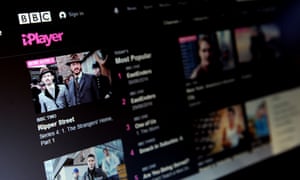
]
Mass
surveillance ruled out as BBC iPlayer loophole closes
Mass surveillance will not be used to catch people who watch
catch-up BBC content following the introduction on Thursday of new rules to
close the “iPlayer loophole”. Enforcement body TV Licensing said it expected
the vast majority of people to “obey the rules” which extend the requirement
for a licence beyond live viewing.
Reports had suggested that the BBC would use a new “fleet”
of detector vans to monitor Wi-Fi connections for people using iPlayer.
However, a spokesman for TV Licensing told Press Association it did not plan to
carry out any form of mass surveillance.
“We expect most people will simply obey the law,” he said.
“We are not going to use mass surveillance techniques, we are not going to ask
internet providers for IP addresses, and in fact we will simply use existing
enforcement processes and techniques which we believe to be adequate and
appropriate.”
Week 37 Story 73- BBC iPlayer loophole closes as licence required for catchup TV
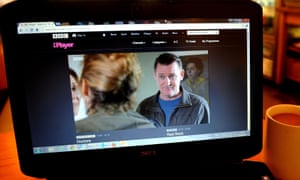
BBC iPlayer
loophole closes as licence required for catchup TV
A BBC source said: “There are no plans for people to enter
their licence details into BBC iPlayer at present because TV Licensing has a
range of enforcement techniques they’ll continue to use. We’ll look at how
effective these are before considering whether an extra verification system is
required.”Previous reports that the BBC would begin snooping on Wi-Fi connections
to check whether people are using iPlayer are understood to be wide of the
mark. However, neither the BBC nor TV Licensing will reveal details of how they
plan to detect lawbreakers.
A TV Licensing spokesman said: “We know the vast majority of
people are law-abiding and would anticipate those who need a licence for the
first time will buy one. We have a range of enforcement techniques which we use
and these have already allowed us to prosecute people who watch on a range of
devices, not just TVs.”Monitoring Wi-Fi connections en masse would be expensive
and potentially illegal. The BBC is entitled to use powers under the Regulation
of Investigatory Powers Act to carry out surveillance on people it suspects of
using BBC services without a licence. However, this is more likely to take the
form of surveilling homes to view or hear people watching BBC content.
Tuesday, 16 May 2017
Week 36 Story 72 'Facebook team working on brain-powered technology'
'Facebook team working on brain-powered technology'
http://www.bbc.co.uk/news/technology-39648788
- Facebook says it is working on technology to allow us to control computers directly with our brains
- It is developing “silent speech” software to allow people to type at a rate of 100 words per minute, it says
- With these announcements, Facebook is envisioning technology that is far in advance of anything currently possible
With the rise of fake news and other important aspects involving Facebook as a core source of many of today's problems, it's interesting to see that they are trying to ignite the purpose of the social media by trying to attempt new technology.
Week 36 Story 71 How will the BBC detect people watching iPlayer without a licence?

How will the BBC detect people watching iPlayer without a licence?
Tales of vans driving around peeking into people’s homes to catch them watching the BBC without a TV licence have been a staple of the right-wing press for years (and more recently, an extremist wing of anti-TV licensing Twitter) but this weekend the Telegraph put an alarming new twist on the story.
- “BBC vans to snoop on internet users” cried the headline, warning that from next month a fleet of vehicles will “fan out across the country capturing information from private Wi-Fi networks in hopes to ‘sniff out’ those who have not paid the licence fee”.
The story was based on a report published by the National Audit Office last month, which said the BBC had demonstrated its ability to detect people watching live programming (the Telegraph decided not to mention the reference to live viewing only) on a “range of non-TV devices”.
Monday, 15 May 2017
Elevate Presentation Notes
Abayomi - Spotify
streaming music
Majority millennials
CD Records falling
Social media - User generated content
Sunny -
Fake news - Russian hacking
Using social media to target
Future of politics
Echo-chambers
Katie - Documentaries
Regulation - Netflix Vs BBC, ITV
Distribution for Netflix
User generated content
Youtube - little documentaries
Docu-drama - Binge watching
Callum - Games
Social media
Hypodermic needle
Techno Panic
Sandy hook killings
Ladan- Twitter
Online news-
Surveillance on audience
Amrit - Instagram
Americanisation
hyper-reality
Female/ male gaze
Facebook Fake news
streaming music
Majority millennials
CD Records falling
Social media - User generated content
Sunny -
Fake news - Russian hacking
Using social media to target
Future of politics
Echo-chambers
Katie - Documentaries
Regulation - Netflix Vs BBC, ITV
Distribution for Netflix
User generated content
Youtube - little documentaries
Docu-drama - Binge watching
Callum - Games
Social media
Hypodermic needle
Techno Panic
Sandy hook killings
Ladan- Twitter
Online news-
Surveillance on audience
Amrit - Instagram
Americanisation
hyper-reality
Female/ male gaze
Facebook Fake news
Harkiran - Lionsgate
Threat of VoD
Faster internet
Khadijah - Netflix
Social Media
Free Trial
Threat of VoD
Faster internet
Khadijah - Netflix
Social Media
Free Trial
Does your case study suggest that new and digital media have had a positive impact by offering audiences a more diverse range of values and ideologies?
Does your case
study suggest that new and digital media have had a positive impact by offering
audiences a more diverse range of values and ideologies?
In this essay we will be looking at the ways in which new
and digital media have had a positive impact by offering audiences a more
diverse range of values and ideologies. Throughout
this essay I will be looking through a Marxists and Pluralists view.
A pluralist would say that social media such as Facebook and
Twitter has provided audiences a more diverse range of values and ideologies. Massive
social media sites such as Twitter and Facebook have been dominating for the
past few years. These social media sites have encouraged their users to raise
awareness and challenge the world’s view of the political world. An example of
this through the social media site twitters where a worldwide campaign surfaced
their site. This has been trending which is the #blacklivesmatter campaign.
This form of user-generated content allowed users to challenge the so called
‘powerful’ authorities on their wrong doings. This campaign surfaced into our
digital lives when a series of unjust concerning black males where going
unnoticed by the American police authorities. A video surfaced online of a
middle age black man who goes by local authorities when he was minding his own
business and posed no physical threat. The video then went viral and brought to
a very serious matter concerning police brutality. This form of citizen
journalism allows everyone to voice their own opinion unlike other countries
where this isn’t possible. This is called the digital divide. There was a story
on the guardian in which ‘Mark Zuckerberg rejects 'crazy idea' Facebook
influenced US election’. This story showcases how powerful the internet is and
how it allows people voice their own and views and ideologies.
A Marxist would on
the other argue that the impact of new and digital media isn’t democratic. This
is case as they believe that audiences don’t have as much power as some media
institutions do. They believe that new and digital media is far from krotick
saying that the internet is a ‘great leveller’. They believe that the massive
media outlets have the power to manipulate the audience through their
choice. You could say that new and
digital media has challenge Herman’s and McChency. Theory that ‘’traditional
media will not be relinquished top easily’. This is the case as through the
raise new and digital media as traditional media is in decline. The negative
effects people may debate on is that we cannot trust the internet because
anyone has the freedom to write whatever they wish to and therefore brings up a
more recent argument, 'Fake News'.
New social media sites such as Snapchat and Instagram has
had a positive effect on the audience. Snapchat especially has had a positive
impact. Snapchat has become extremely
popular over the past years as they now have 150 million users worldwide. These user generated content has allowed users
to express their own views and ideologies and challenge the status quo. This is
evident through the #blacklivesmatter campaign that surfaced on twitter. This campaign challenged discriminated on the
black community sharing light into police brutality. Due to the “trending”
mechanism on Twitter, more people have come across the values and ideologies of
social movements such as Blacklivesmatter. Twitter has enabled audiences to
therefore initiate campaigns such as 'Black Lives Matter' and therefore allows
audiences to collectively aid positive images of black identity. A more recent
case is the 15 year old Texas boy, who was shot by a police officer which was
filmed on officer’s body cameras. A lot of the time, businesses may use this
app as they would believe that it is less time consuming. Therefore, this then
leads to the fact of which people on the internet are not to be trusted.
With the introduction of news and digital media producers
have been pushed to enforce more audience interaction schemes through
user-generated sites such as Twitter and Facebook. Media producers such as news
platforms have recognised that traditional media is in terminal decline and
that social media sites is the dominant platform for news. Many different news
platforms have got their own official social media accounts on Twitter and
Facebook. This is so they can interact and give out the same views values as
they would get on TV News programmes and more. A pluralist would argue that audiences
are now becoming more active and more of the media they consume. This is the
case as a pluralist believe that audiences are perceived a capable of manipulating
the media and having access to that plural values of society’ enabling to ‘conform,
accommodate and reject.’ This showcases that audiences have the power to recognise
what they are reading is true or not. This is a massive change due to the raise
if new and digital media. In traditional media it was harder to this as it was
one of the only news platforms.
From this essay I can conclude that new and digital media
overall has had a positive impact on audiences. This is the case as there some
drawbacks concerning authenticity, new and digital media allows us to notice
that there is something wrong as user generated sites share light into this.
UWL lecture notes
- Paris Attacks 2015
- Arab Uprising
Key to symbosis between mainstream media and social media. - Gaddafi
Captured by a 'rebel'.
Beaten to death, taken in a van. - Ethical Considerations
Invasion/Intrusion of privacy. - 'BBC Media Action Campaign'
- Challenges for news reporters - producing content for different platforms
- Gives people a voice.
- Facebook and Buzzfeed investing in digital video content
Wednesday, 10 May 2017
Learner Response-
40/80 D
WWW: Well structured essay in Section B, incorporating Marxists and pluralists.
EBI: You need to include more of our own examples in Section A
I did not achieve my target grade for A2 Media as I was 5 marks below.
Section A
Question 1-
Question 2-
Question 3 -
Use of narrative voice over.
There are many different ways in which the two media products used media language techniques to make their product appear authoritative and trustworthy. One way in which the Redrow Homes advert does this is, is through the constant voice over throughout the extract. The non-dietetic sound gives the main protagonist in the advert power due to his deep voice. the formal language used in the voice over showcases his intelligence. This is the case as in the advert he is trying to go up in the world and make a better life for his self. This costume showcases how wealthy he is. In the extract of Trews Report the language they use is much different than the Redrow advert. The calm look gives the audience a sense of self ease as they feel comfortable. They perhaps feel this way due to the Russel Brands and co-presenter costume as they both wearing tracksuits. the fact that the presenter goes out to interview the people showcases they trying to portray a fair reflection and representation.
A pluralist would agree with the statement that ''result of development in new and digital media, traditional media face a struggle to survive.'' A pluralist would say there is no doubt that traditional media is struggling to survive. This is due to the raise new and digital media, where it allows users to access different contact you would get on traditional media platforms such as news bulletins and newspapers. Social media has now become users first access to news through sites such as Twitter and Facebook. this is the case as people would get the same news values on the social media sites as they would on a news programme such as BBC News at 6. This is the case as they will still get the sense of immediacy as they will still be getting news quick perhaps even quicker even quicker with citizen journalism. A video would go viral first before a news programme uses it. An example of this is Eric Gardner story where he was harassed by these police officers and was chocked to death overthought he expressed his distress. This video was caught on camera on someones phone and was posted on YouTube and other media platform.This was first on social media before traditional media platforms. You could say this is one reason why traditional media such as newspapers are struggling as they cant produce the same type of immediacy.
WWW: Well structured essay in Section B, incorporating Marxists and pluralists.
EBI: You need to include more of our own examples in Section A
I did not achieve my target grade for A2 Media as I was 5 marks below.
Section A
Question 1-
Question 2-
Question 3 -
Use of narrative voice over.
- Use of interviews involving residents in New Era estate.
There are many different ways in which the two media products used media language techniques to make their product appear authoritative and trustworthy. One way in which the Redrow Homes advert does this is, is through the constant voice over throughout the extract. The non-dietetic sound gives the main protagonist in the advert power due to his deep voice. the formal language used in the voice over showcases his intelligence. This is the case as in the advert he is trying to go up in the world and make a better life for his self. This costume showcases how wealthy he is. In the extract of Trews Report the language they use is much different than the Redrow advert. The calm look gives the audience a sense of self ease as they feel comfortable. They perhaps feel this way due to the Russel Brands and co-presenter costume as they both wearing tracksuits. the fact that the presenter goes out to interview the people showcases they trying to portray a fair reflection and representation.
A pluralist would agree with the statement that ''result of development in new and digital media, traditional media face a struggle to survive.'' A pluralist would say there is no doubt that traditional media is struggling to survive. This is due to the raise new and digital media, where it allows users to access different contact you would get on traditional media platforms such as news bulletins and newspapers. Social media has now become users first access to news through sites such as Twitter and Facebook. this is the case as people would get the same news values on the social media sites as they would on a news programme such as BBC News at 6. This is the case as they will still get the sense of immediacy as they will still be getting news quick perhaps even quicker even quicker with citizen journalism. A video would go viral first before a news programme uses it. An example of this is Eric Gardner story where he was harassed by these police officers and was chocked to death overthought he expressed his distress. This video was caught on camera on someones phone and was posted on YouTube and other media platform.This was first on social media before traditional media platforms. You could say this is one reason why traditional media such as newspapers are struggling as they cant produce the same type of immediacy.
Massive social media sites such as Twitter and Facebook have been dominating for the past few years. These social media sites have encouraged their users to raise awareness and challenge the world’s view of the political world. An example of this through the social media site twitters where a worldwide campaign surfaced their site. This has been trending which is the #blacklivesmatter campaign. This form of user-generated content allowed users to challenge the so called ‘powerful’ authorities on their wrong doings. This campaign surfaced into our digital lives when a series of unjust concerning black males where going unnoticed by the American police authorities. A video surfaced online of a middle age black man who goes by local authorities when he was minding his own business and posed no physical threat. The video then went viral and brought to a very serious matter concerning police brutality. This form of citizen journalism allows everyone to voice their own opinion unlike other countries where this isn’t possible. This is called the digital divide. There was a story on the guardian in which ‘Mark Zuckerberg rejects 'crazy idea' Facebook influenced US election’. This story showcases how powerful the internet is and how it allows people voice their own and views and ideologies. A Marxist would on the other argue that the impact of new and digital media isn’t democratic. This is case as they believe that audiences don’t have as much power as some media institutions do. They believe that new and digital media is far from krotick saying that the internet is a ‘great leveller’. They believe that the massive media outlets have the power to manipulate the audience through their choice. You could say that new and digital media has challenge Herman’s and McChency. Theory that ‘’traditional media will not be relinquished top easily’. This is the case as through the raise new and digital media as traditional media is in decline.
Week 35 Story 70 Robots won't just take our jobs – they'll make the rich even richer

Robots won't just take our jobs – they'll make the rich even richer
Robots are set to take future jobs in the future and rather than benefiting those already at work it's going to cause them to lose their jobs but help the rich gain more money as they won't need to employe as many people if not anyone at all.
- The real threat posed by robots isn’t that they will become evil and kill us all, which is what keeps Elon Musk up at night – it’s that they will amplify economic disparities to such an extreme that life will become, quite literally, unlivable for the vast majority. A robot tax may or may not be a useful policy tool for averting this scenario. But it’s a good starting point for an important conversation. Mass automation presents a serious political problem – one that demands a serious political solution.
Week 35 Story 69 IPlayer licence rules have changed – but there's one loophole left for students
IPlayer
licence rules have changed – but there's one loophole left for students
- The news was a blow to many heading to university this month, given that so few will be bringing a TV along with them. According to research by TV Licensing, iPlayer is the most popular catch-up platform among students, with the vast majority watching programmes on their laptops and phones.
- The change adds to students’ mounting financial burdens this year, including tuition fee rises and the recent scrapping of maintenance grants. A petition against the rule, launched by a Loughborough University student, has gained more than 18,000 signatures.
- However, it appears one loophole will remain open: students will still be able to access the iPlayer for free on mobile devices that are registered at their parents’ address. (This will work only as long as it is registered as the student’s primary address.)
Week 34 Story 68- BBC iPlayer users will have to pay TV licence fee from 1 September
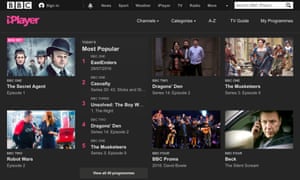
BBC iPlayer
users will have to pay TV licence fee from 1 September
Though the vast majority of households own a TV licence,
those without one who only watch catch-up content and not live broadcasts were
technically exempt from paying the £145 a year charge.
- The government had promised to close the loophole, which already costs the BBC about £150m a year and is likely to increase, during negotiations last summer that also saw the corporation agree to shoulder the £750m burden of free licence fees for the over-75s.
- A spokesperson for TV licensing said: “As of 1 September 2016, a change in the law means you need to be covered by a TV licence to download or watch BBC programmes on demand – including catch-up TV – on BBC iPlayer. This applies to all devices. The change will not affect the huge majority of households which are already licensed.
Week 34 Story 67-Who is allowed to watch the BBC iPlayer?
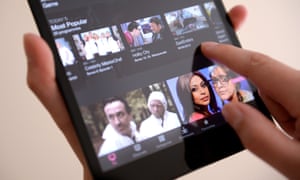
Who is
allowed to watch the BBC iPlayer?
‘’A TV licence is required to watch BBC content online – a
result of changing viewing habits and an attempt to stem financial losses. The
corporation hopes more people will decide to start paying than stop watching’’
Why was a licence not
needed for catch-up in the first place?
- The current legislation governing TV licences was originally part of the 2003 Communications Act; the iPlayer was not launched until 2007. In recent years more people have shifted to catch-up and online viewing, making rules written more than a decade ago even more outdated.
- While the average person in the UK still spends about 80% of their viewing time watching live or recorded TV, that figure is falling. Among younger generations the average is less than half that, and increasing numbers are not watching (or recording) live TV at all.
Subscribe to:
Comments (Atom)
